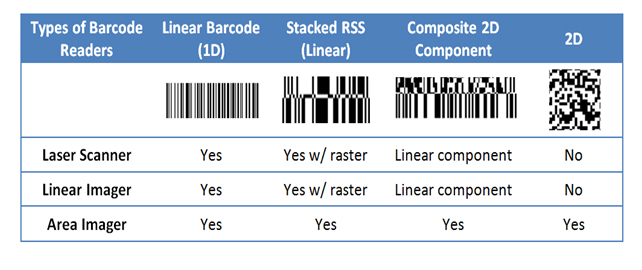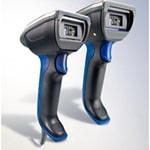7 Questions to Ask When Selecting a Warehouse Scanner
Trying to determine what industrial barcode scanner will work best for your work environment? Here are some tips on what to look for to help you make a sound decision.
1. Does the scanner need to be rugged?
In an industrial environment, it’s important to make sure your equipment can withstand everyday working conditions. You should consider whether your scanner will be exposed dust, dirt, or water, and compare each device’s IP rating. An IP rating, (or International Protection Rating, sometimes also interpreted as Ingress Protection Rating), classifies the degree of protection against the intrusion of solid objects, dust, and water in the casing / enclosure. In addition to IP rating, Barcode scanners may be tested for shock and vibration protection and drop survival onto concrete or steel surfaces. Read “What is an IP rating” for more information.
2. Do the warehouse scanners need to withstand a certain temperature?
If you work in extreme temperatures, you’ll need to consider whether or not your scanners will operate properly. Pay attention to the scanners operating temperature, storage, and recharging temperature. For example, cold storage environments can be particularly tough on your equipment. Long-term use of non-optimized equipment in cold conditions can cause screens and housings to become brittle, and repeated condensation can cause internal components to corrode, short-circuit and fail.1
3. Does the scanner need to be portable?
If so, consider a scanner that is cordless, lightweight, and easy to carry. Portable or cordless scanners will need to be charged and include a base that is used to charge the scanner and transmit data. Cordless scanners are usually more expensive per unit but can offer Bluetooth and wireless communication.
4. Will the scanner be attached to a computer?
You need to check the computer’s ports first. Barcode scanners connect to either USB, serial, or PS2 ports on a computer. The computer must have the necessary compatible port in order to attach the scanner. Sometimes an adapter can be used to connect to a different type of port. A tethered reader connected to a computer does not need to be charged.
5. Is the scanner compatible with the of type barcode you’re using?
Barcodes are most commonly one-dimensional (1D) or two-dimensional (2D), with different resolutions. If you are using 2D Barcodes, make sure that you purchase a scanner that can read 2D barcodes. There are several types of barcode scanners including Laser, Linear Imagers, and Area Imagers, see the chart below. Some scanners can even read damaged barcodes.

6. Will the scanner be compatible with your current software application?
Many businesses have software for warehouse management, distribution, inventory, etc. You certainly don’t want to purchase warehouse scanners that are incompatible with existing business systems, be sure to double check.
7. Do you know your seller?
Purchase your barcode scanner from a knowledgeable provider that offers excellent customer support, shipping, and warranty options. The sales staff should be able to guide you through the process and help you select a scanner that will meet your needs and budget. Buying the wrong product can end up costing you more in service and downtime than the original price of the scanner.
Cold Hard Facts about Using Mobile Computers in Cold Storage Environments
